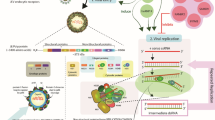Abstract.
Microsporidia of the genus Encephalitozoon are emerging protozoal agents that mainly infect immunocompromised patients with AIDS. At present, disseminated infections with members of the genus Encephalitozoon can only be successfully treated with albendazole. As chitin is a basic component of the microsporidian spore, we evaluated, in vitro, the susceptibility of a human-derived strain of Encephalitozoon cuniculi to polyoxin D and nikkomycin Z, which are known competitive inhibitors of chitin synthetase enzymes. Using an in vitro assay, polyoxin D at 1, 10 and 100 µg/ml significantly reduced the number of parasitic foci on days 6, 9, and 15 post-infection. However, nikkomycin Z revealed a marked but lower reduction in the number of parasitic foci than polyoxin D. A significant reduction of parasitic foci was achieved for nikkomycin Z at 10 and 100 µg/ml up to day 9 post-infection. Polyoxin D was approximately tenfold more effective in our in vitro assay than nikkomycin Z.
Similar content being viewed by others
Author information
Authors and Affiliations
Additional information
Electronic Publication
Rights and permissions
About this article
Cite this article
Sobottka, I., Bartscht, K., Schäfer, P. et al. In vitro activity of polyoxin D and nikkomycin Z against Encephalitozoon cuniculi. Parasitol Res 88, 451–453 (2002). https://doi.org/10.1007/s00436-002-0592-9
Received:
Accepted:
Issue Date:
DOI: https://doi.org/10.1007/s00436-002-0592-9




